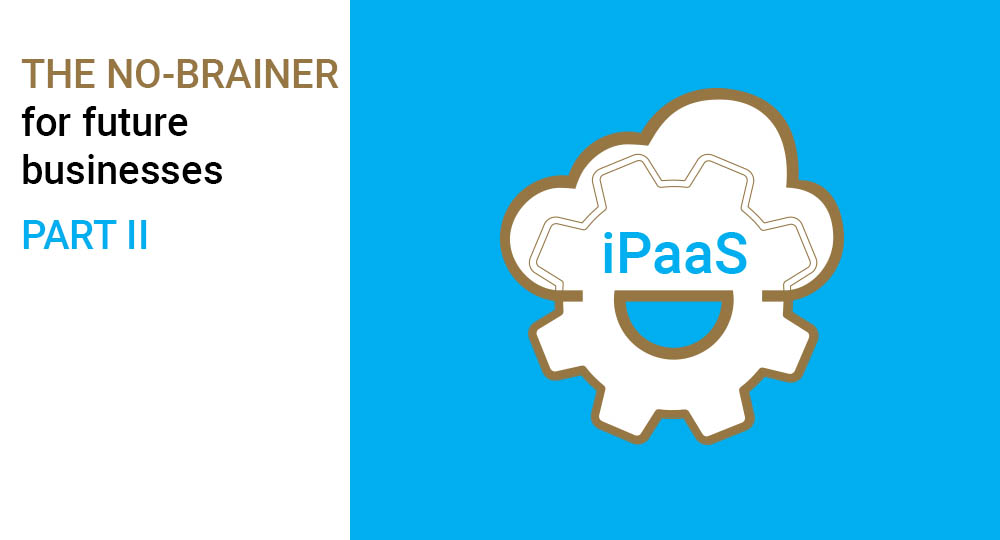In my last blogpost I emphasized on the importance of an iPaaS for digital businesses and the ability to support “a wide variety of endpoints and data formats, domains, constituents and delivery models.” (2016) I also stated that digital is the new imperative and that everything is moving faster than ever before. In this blogpost I will further elaborate on the definition and fundamentals of the concept of a digital business (platform), the relation with an iPaaS, and the digital capabilities to help gain agility to make success of the business.
For this blogpost I extensively used the “Aragon Research Globe for Digital Business Platforms” (2020), which I found very inspiring, interesting and relevant to read. In this research paper, Burton and Lundy (2020) explain the topic of Digital Business Platforms and argue that a “digital business is, first and foremost, about business model changes that are specifically designed to enable organizations to proactively reach, serve, and support their customers and partners from their contextual perspective” and that “to support digital business, organizations seek to use a digital business platform to integrate many of the emerging technologies (IoT devices, analytics, apps, etc.) and data sources needed to enable new business models.” (p. 3) It is however important to mention, as Burton and Lundy (2020) do, that the emergence of technologies such as IoT, big data, analytics, and AI are the catalyst for business model changes, and certainly not the change itself. Something I couldn’t agree more on. In that respect, a digital business can be considered a crossroad between technology, data and new (outside-in) business models, by leveraging connected experiences to engage customers.
> Digital Business = Technology + Data + New Business Models
A digital business platform could therefore be seen as one of the most important, if not the most important, digital asset for a digital business, and “organizations should seek to use a digital platform to integrate many of the emerging technologies (IoT devices, analytics, apps, etc.) and data sources needed to enable new business models.” (p. 6) Here we already notice a lot of similarities with the capabilities and strategic goals and benefits of an iPaaS. But is it safe to state that an iPaaS is in fact a technological synonym for the concept of a Digital Business Platform?
Digital Business Platform Capabilities
A digital business platform, but also an iPaaS, provides common services that enable value-creating interactions or services to interoperate and collaborate (core integration principles) such as open APIs for exposing data sources. With the support for emerging technologies (IoT devices, analytics, apps, etc.) and advanced analytics, all ingredients are in place for new digital business models.
> Digital Business Platform = Interoperability + Emerging Technologies + Advanced Analytics
In the research paper, Burton and Lundy (2020) acknowledge the importance of integration as a prerequisite for a digital business platform, stating that these platforms typically include the following (differentiating) integration capabilities (p. 7):
1) workflow and process management capabilities,
2) data and systems integration capabilities,
3) AI, decision optimizing, and action features, and
4) machine (IoT) and sensor management that customers can use to create digital business solutions.
Digital business platforms are distinct and differentiated from other platforms by the ability to:
1) integrate new and existing applications, data, and devices needed to support new digital business models.
2) serve customers and partners from their contextual perspective (physical and virtual context).
Digital Business Application
As Burton and Lundy (2020) explain, there is also a market for organizations that are seeking for a platform to extend their current (integration) landscape and common business models to reach out to customers’ context. (p. 7) These organizations are most often looking for a way to incorporate emerging technologies such as IoT, big data, analytics, and AI into their own closed ecosystem (CRM, ERP, etc.) to achieve operational efficiency. From an integration point of perspective, this could be the case when organizations start migrating from on-premise to a full cloud-native environment. This transformation could also lead to a temporary hybrid situation (Hybrid Integration Platform, 2016) where disparate endpoints, both on-premise and cloud based, interact with each other in a fast, cost effective, safe and innovate manner. This won’t necessarily lead to new digital business initiatives or to further enrich the customer’s experience (outside-in), but would definitely make it possible later on.
 Source: Burton, B., Lundy, J. (p. 7. 2020)
Source: Burton, B., Lundy, J. (p. 7. 2020)
Conclusion
One could argue that we finally get to see the integration paradigm flying in as a business-centric enabler instead of an IT-driven solution. This is exactly what SOA was intended to do but horribly failed in. However, if we look at the definition, fundamentals, and digital capabilities, it is safe to state from a holistic point of view that an iPaaS could be in fact implementing a (cloud-based) digital business platform or at least the greater part of it. But is it also safe to state that this is the solution for business and IT alignment? Although I am convinced that this is the way to go, and even that this is the only way to go, it is too early to be able to draw this conclusion. But frankly, I don’t think we have any choice, considering the digital age we live in and the continuously elevating customer’s expectations.
References
Golluscio, E., Thompson, J., & Guttridge, K. (2016). Market Guide for Hybrid Integration Platform-Enabling Technologies. Retrieved from Gartner: https://www.gartner.com/doc/3291720/market-guide-hybrid-integration-platformenabling
Burton, B. & Lundy, J. (2020). The Aragon Research Globe for Digital Business Platforms. Retrieved from TIBCO Software (complimentary copy): https://https://www.tibco.com/resources/analyst-report/aragon-research-globe-digital-business-platforms-2020





